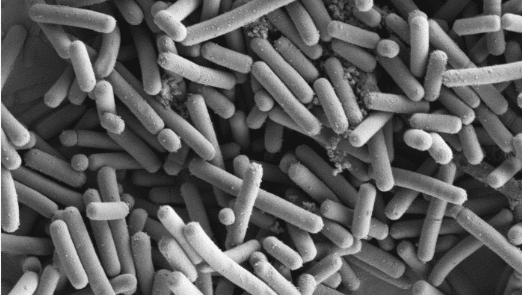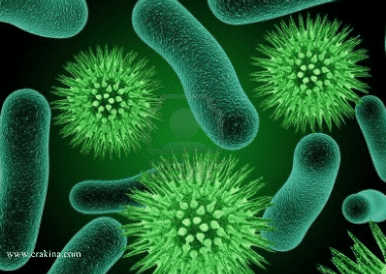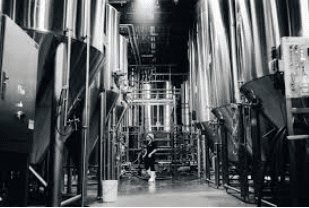Descrition to johnsonii
- Lactobacillus johnsonii is a probiotic bacteria that assists in maintaining conditions in the gastric intestinal tract to improve metabolism.
- Lactobacillus johnsonii is a gram-positive member of the genus Lactobacillus, a species of probiotic bacteria found in the human gastrointestinal tract. Therefore, this bacteria is known as a good gut bacteria. There are different strains of L. johnsonii bacteria, such as 456, NC533, L531, etc.
- Their primary function is to protect the mucosal lining on the gastrointestinal tract (GI tract) walls from other pathogens inside the human digestive tract. Hence, it inhibits any inflammation and infections caused by the harmful bacteria and pathogens. L. johnsonii species also maintains the pH conditions in the tract to provide an appropriate environment for digestion.
- These bacteria are responsible for improving the gastrointestinal metabolism of various nutrients such as sugars, amino acids, and other fatty acids. They also provide a protective lining to shield the GI tract, reducing inflammation. Therefore, they are considered as an anti-inflammatory bacteria.
Functions and Benefits
- Pathogenic bacterias such as Escherichia coli, Salmonella, Clostridium, etc., infects the epithelium wall of the gastrointestinal tract lining, causing inflammation (gastroenteritis) as an immune response to these pathogens.
- Therefore, probiotic bacterias shield the intestinal barrier from these pathogens, thereby reducing the risk of gastrointestinal diseases. Hence, one of the probiotic’s significant functions is its anti-inflammatory response, regulating the immune system response, and improving intestinal immunity.
- Salmonella and Helicobacter pylori bacterias are found in human and animal bodies. An increased amount of these bacteria leads to diarrhea, vomiting, cramping in the abdomen, etc., causing gastric toxicity. However, it has been observed that the presence L. johnsonii results in suppressing Salmonella species and Helicobacter pylori hence, reducing the gastric toxicity in the GI tract.
- L. johnsonii is dependent on peptides and amino acids to promote the biosynthesis digestion of proteins. Since this probiotic bacteria regulate gastric toxicity, it maintains the toxicity levels, gastric acids, and pH condition. This environment in the GI tract enhances the digestion and metabolism of nutrients such as vitamins, fibers, and other short-chain fatty acids, thereby keeping the body healthy.
- Additionally, L. johnsonii, a lactic acid bacteria (LAB) that produces lactic acid, is also used in the fermentation of dairy products such as milk, yogurt, and cheese. L. johnsonii also suppresses the growth of bacterias or acidic agents that are responsible for food spoilage.
- They are also used to preserve poultry products such as chicken, meat, and piglets to promote growth and decrease the colony of E. coli bacteria that are harmful to humans.
Issues and Treatments
- Insufficient probiotic bacterias will lead to indigestion, constipation, diarrhea, irritable bowel syndrome, and reduced absorption of nutrients. Probiotic supplements are not recommended as a long-term remedy for children. This is to avoid any risks resulting in increasing colonies of various strains of probiotic bacteria leading to a higher chance of gastrointestinal diseases.
- However, studies are still determining the appropriate combination of probiotics for children after considering certain factors such as HLA (Human Leukocyte Antigen) type responsible for determining immune systems.
- In adults, probiotic supplements are consumed either in capsules or food items fermented with probiotic bacteria. These supplements are consumed in cases where the harmful bacteria is more than good bacteria in your body to increase the amount of good bacteria required to neutralise the harmful bacteria.
- Some probiotic food items are probiotic yogurt, certain dairy products, pickles, and other supplements in powdered form, liquids, or capsules, consumed to enhance the fermentation of this food in the GI tract. Since these supplements are not drugs, they are not required to be approved by the FDA (Federal Drug Administration).
- However, there is a risk of infections in the case of people undergoing immunotherapy, with weak immune system, or ill.
- An increased amount of harmful bacteria infecting the epithelium wall will disrupt the GI tract lining, thus reducing the absorption of nutrients due to decreased metabolic digestion. As good bacteria aids in digestion, L. johnsonii protects the GI tract wall, thereby increasing the absorption of nutrients by the intestinal wall.
- Therefore, the body will receive enough nutrients to grow and produce energy to perform essential functions.
- Although the risks involved in consuming probiotic supplements are low, it is not limited to increased antibiotic resistance, possible development of infections, and toxic byproducts produced from these supplements. Therefore, a balanced diet can aid your body in naturally creating probiotic bacterias like Lactobacillus johnsonii to improve your digestion and protect the gastrointestinal tract.
- internal links:
Tags:
MicrobesOther Articles
Next
Previous









